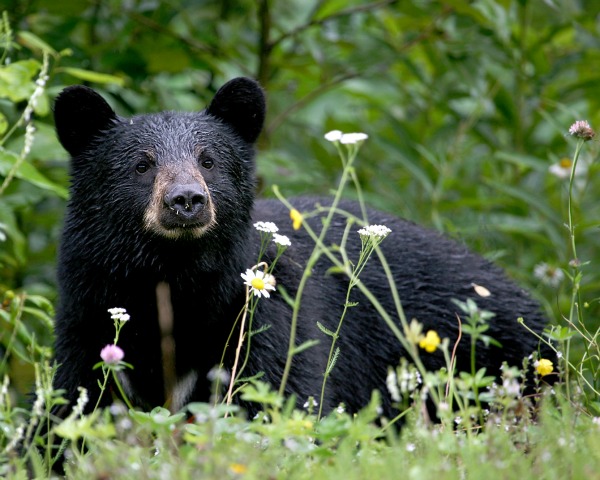Trail Conference Urges New Jersey Department of Environmental Protection to Engage the Public with Widespread Bear Education to Keep Parks Open
Title
Body

The closure of 7,500 acres of popular Bergen and Passaic County parklands over the last two weeks by New Jersey’s Department of Environmental Protection and Bergen County Parks is an understandable but unfortunate response to “unusual black bear activity” reports from the public. The Trail Conference assisted in these closures, but we believe interactions between bears and people in popular suburban parks are predictable this time of year and largely preventable through robust public education programs. The Trail Conference is eager to work with park agencies and the public to avoid park closures in the future.
Bears are a common and important part of our area’s ecosystem. While black bears are by nature wary of humans, they are also intelligent and curious, and bear sightings have been reported in nearly every county in New York and New Jersey. Entering bear territory no longer means entering the deep woods: We share our suburban neighborhoods with bears, and we must understand that how we behave directly affects their behavior.
Bear safety begins with bear education. Learning how to act in the event of a bear encounter is crucial for the public’s safety, and, especially, the bear’s safety. We want to work with the NJ DEP and other land managers to reinforce the fact that we live and recreate among bears, and that there is a right and wrong way to act in parks, the bear’s natural habitat.
Appropriate signage is particularly crucial during the fall, when bears are trying to eat as much food as possible before winter. They are learning bad habits from people who are trying to “help” them by offering food—an illegal and dangerous act that leads to aggressive bear behavior. The end result is bears being trapped and euthanized, and our parks being closed “out of an abundance of caution” during one of the most spectacular times of the year to explore the outdoors—a huge failure. These are our public parks, and we need to work together to keep them open.
There are a number of things we can do:
- The Trail Conference offers bear safety tips written by wildlife experts at http://www.nynjtc.org/content/bear-tips-hikers. We can do a better job of advertising this information by including it on our website’s park and hike descriptions.
- Directing people to common-sense rules on a website is not enough. Clear information about these animals must be installed at trailheads and kiosks—not just in Ramapo Mountain State Forest and Ramapo Valley County Reservation, but in all parks where there is a likelihood of bear activity. The NJ DEP has good materials on their website. The Parks can reproduce them and Trail Conference volunteers can help keep trailheads posted.
- It is crucial to recognize that park closures are a reactionary measure and do little to remedy the underlying issues that produce “problem bears.” Only public outreach and education can address this matter without setting precedent for a seasonal cycle of public land closures at great cost to both land managers and the hiking public.
It’s time to stop blaming nuisance bears and uneducated people for the shuttering of our forests and instead work together on long-term solutions. The Trail Conference is prepared to work with the DEP and our parks partners to protect people, protect bears, and keep our parks open.
